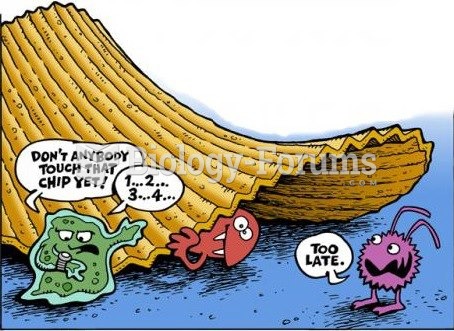|
|
|
Did you know?
Patients who cannot swallow may receive nutrition via a parenteral route—usually, a catheter is inserted through the chest into a large vein going into the heart.
Did you know?
Illicit drug use costs the United States approximately $181 billion every year.
Did you know?
Aspirin is the most widely used drug in the world. It has even been recognized as such by the Guinness Book of World Records.
Did you know?
The horizontal fraction bar was introduced by the Arabs.
Did you know?
Drying your hands with a paper towel will reduce the bacterial count on your hands by 45–60%.







